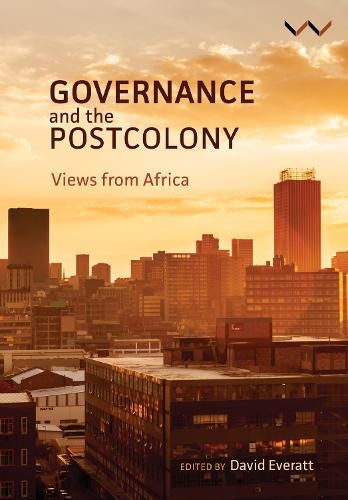Readings Newsletter
Become a Readings Member to make your shopping experience even easier.
Sign in or sign up for free!
You’re not far away from qualifying for FREE standard shipping within Australia
You’ve qualified for FREE standard shipping within Australia
The cart is loading…






This title is printed to order. This book may have been self-published. If so, we cannot guarantee the quality of the content. In the main most books will have gone through the editing process however some may not. We therefore suggest that you be aware of this before ordering this book. If in doubt check either the author or publisher’s details as we are unable to accept any returns unless they are faulty. Please contact us if you have any questions.
Civil society, NGOs, governments, and multilateral institutions all repeatedly call for improved or ‘good’ governance - yet they seem to speak past one another. Governance is in danger of losing all meaning precisely because it means many things to different people in varied locations. This is especially true in sub-Saharan Africa. Here, the postcolony takes many forms, reflecting the imperial project with painful accuracy. Offering a set of multidisciplinary analyses of governance in different sectors (crisis management, water, food security, universities), in different locales (including the African Union and specific regional contexts from West Africa, Zambia, to South Africa), and from different theoretical approaches (network to adversarial network governance, and beyond), this volume makes a useful addition to the growing debates on ‘how to govern’. It steers away from offering a ‘correct’ definition of governance, or from promoting a particular position on postcoloniality. It gives no conclusion that neatly sums up all the arguments advanced. Instead, readers are invited to draw their own conclusions based on these differing approaches to and analyses of governance in the postcolony. As a robust, critical assessment of power and accountability in the sub-Saharan context, this collection brings together topical case studies that will be a valuable resource for those working in the field of African international relations, public policy, public management and administration.
$9.00 standard shipping within Australia
FREE standard shipping within Australia for orders over $100.00
Express & International shipping calculated at checkout
This title is printed to order. This book may have been self-published. If so, we cannot guarantee the quality of the content. In the main most books will have gone through the editing process however some may not. We therefore suggest that you be aware of this before ordering this book. If in doubt check either the author or publisher’s details as we are unable to accept any returns unless they are faulty. Please contact us if you have any questions.
Civil society, NGOs, governments, and multilateral institutions all repeatedly call for improved or ‘good’ governance - yet they seem to speak past one another. Governance is in danger of losing all meaning precisely because it means many things to different people in varied locations. This is especially true in sub-Saharan Africa. Here, the postcolony takes many forms, reflecting the imperial project with painful accuracy. Offering a set of multidisciplinary analyses of governance in different sectors (crisis management, water, food security, universities), in different locales (including the African Union and specific regional contexts from West Africa, Zambia, to South Africa), and from different theoretical approaches (network to adversarial network governance, and beyond), this volume makes a useful addition to the growing debates on ‘how to govern’. It steers away from offering a ‘correct’ definition of governance, or from promoting a particular position on postcoloniality. It gives no conclusion that neatly sums up all the arguments advanced. Instead, readers are invited to draw their own conclusions based on these differing approaches to and analyses of governance in the postcolony. As a robust, critical assessment of power and accountability in the sub-Saharan context, this collection brings together topical case studies that will be a valuable resource for those working in the field of African international relations, public policy, public management and administration.